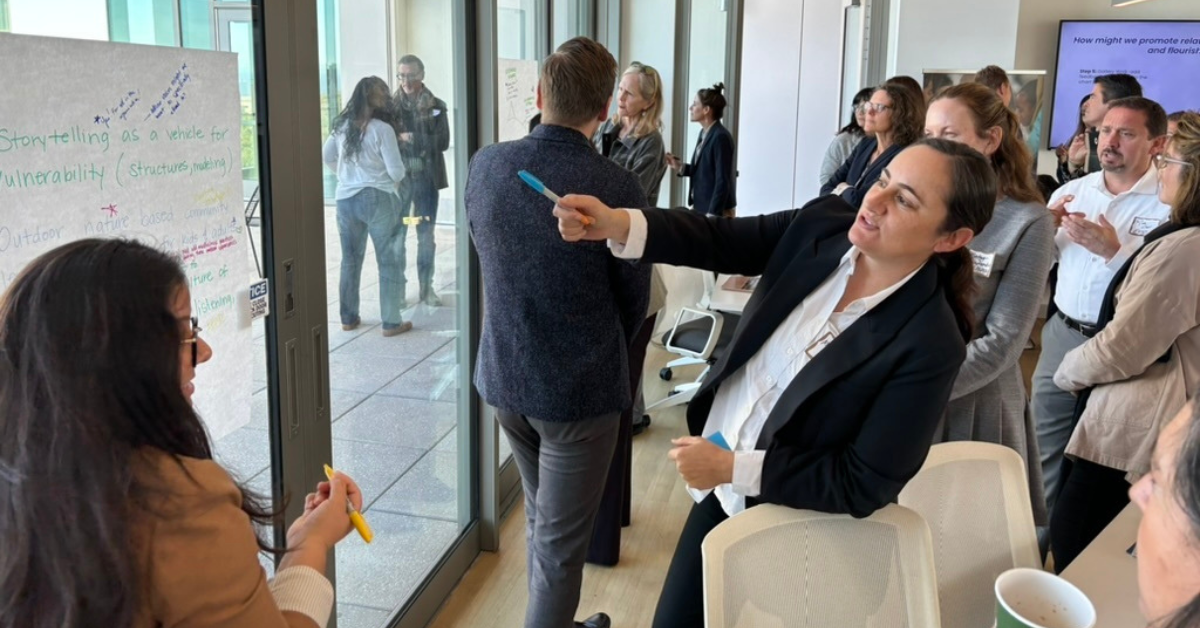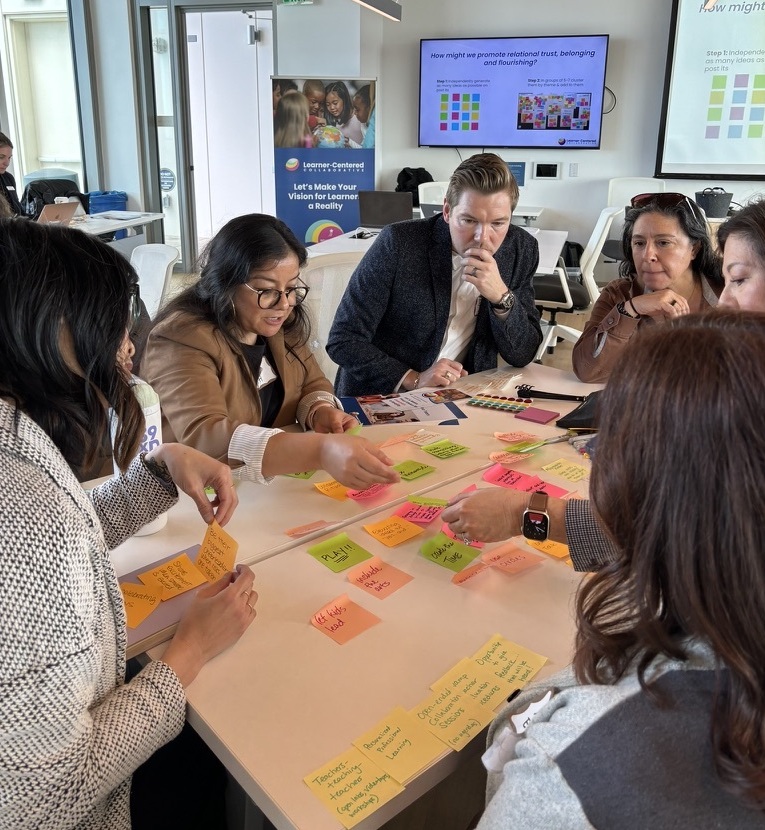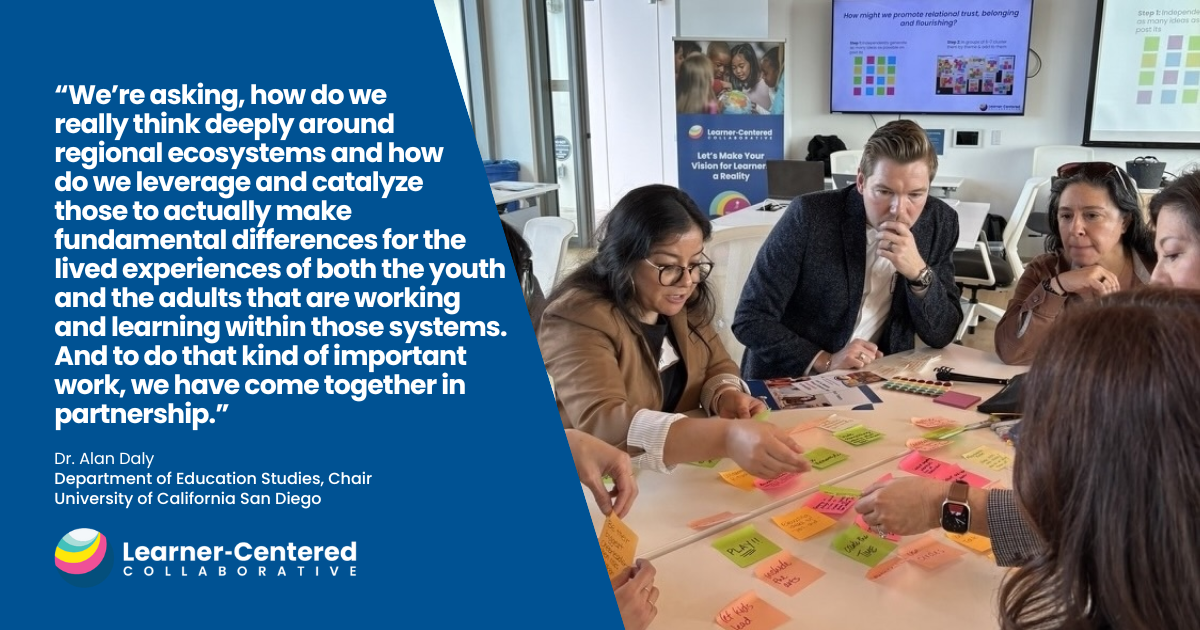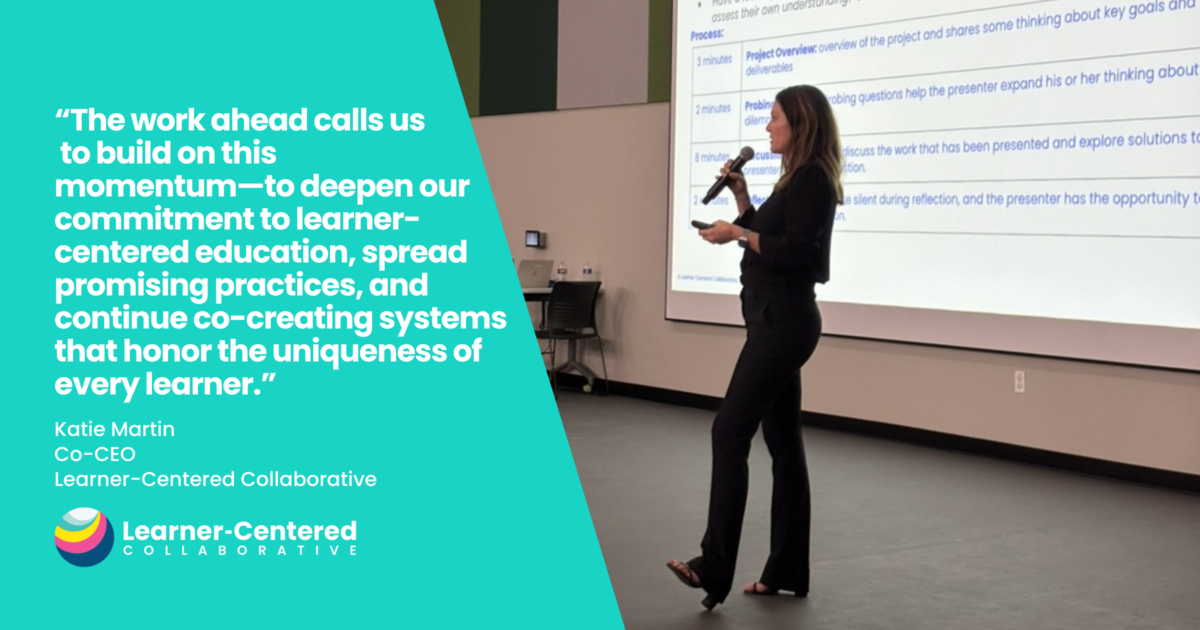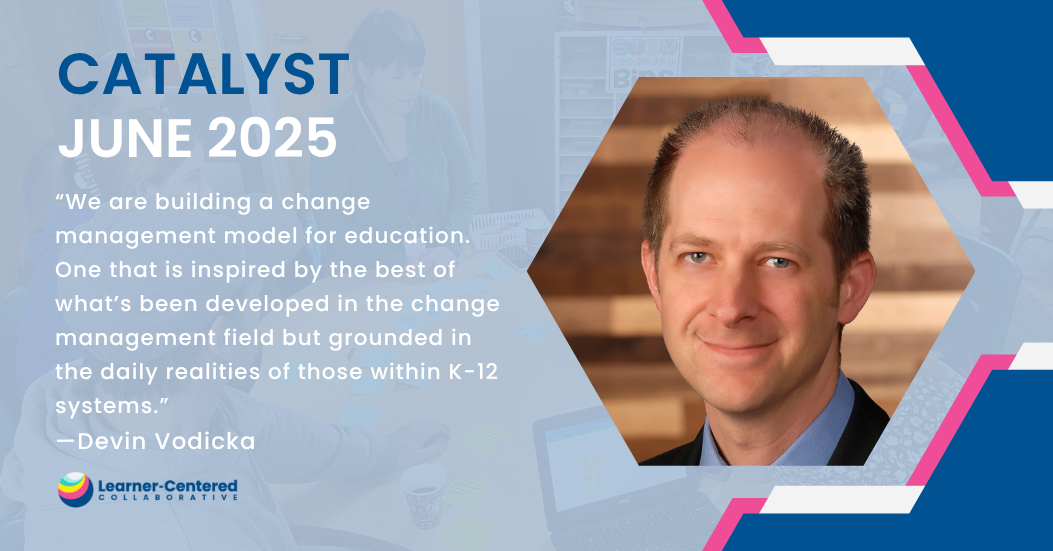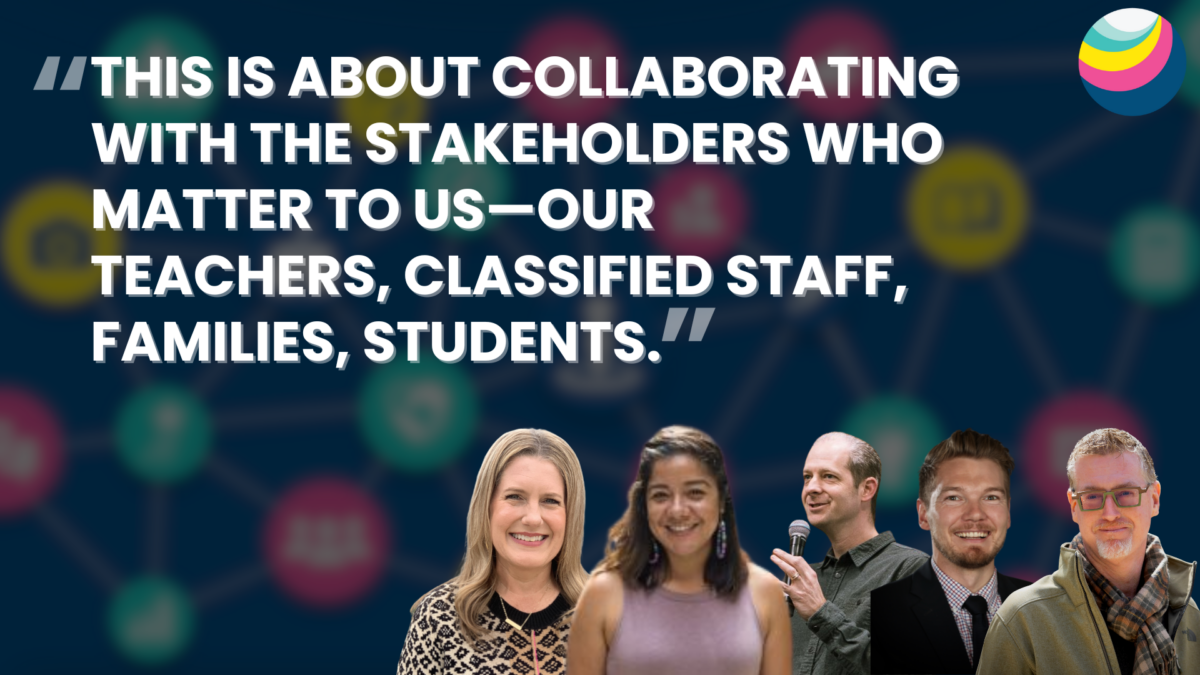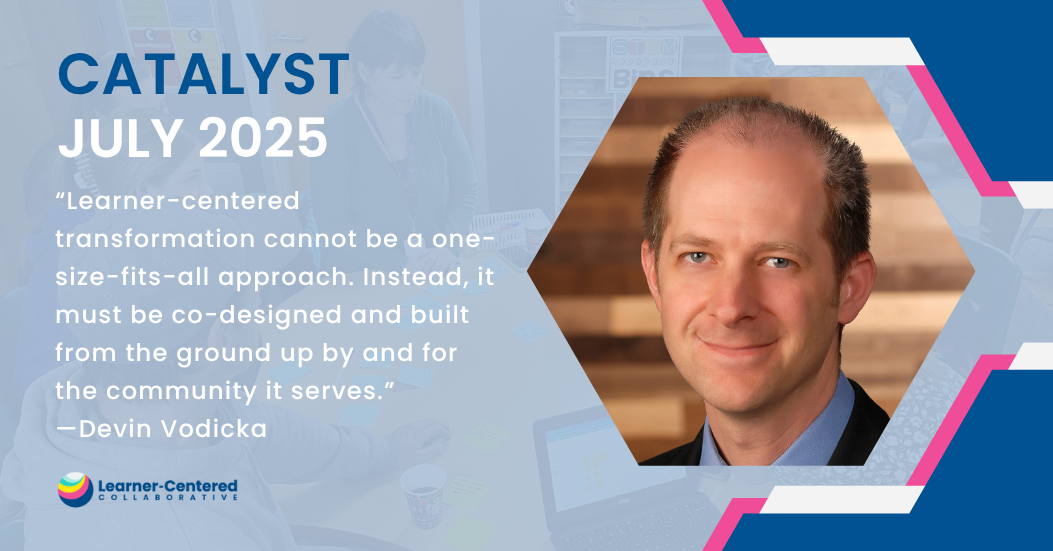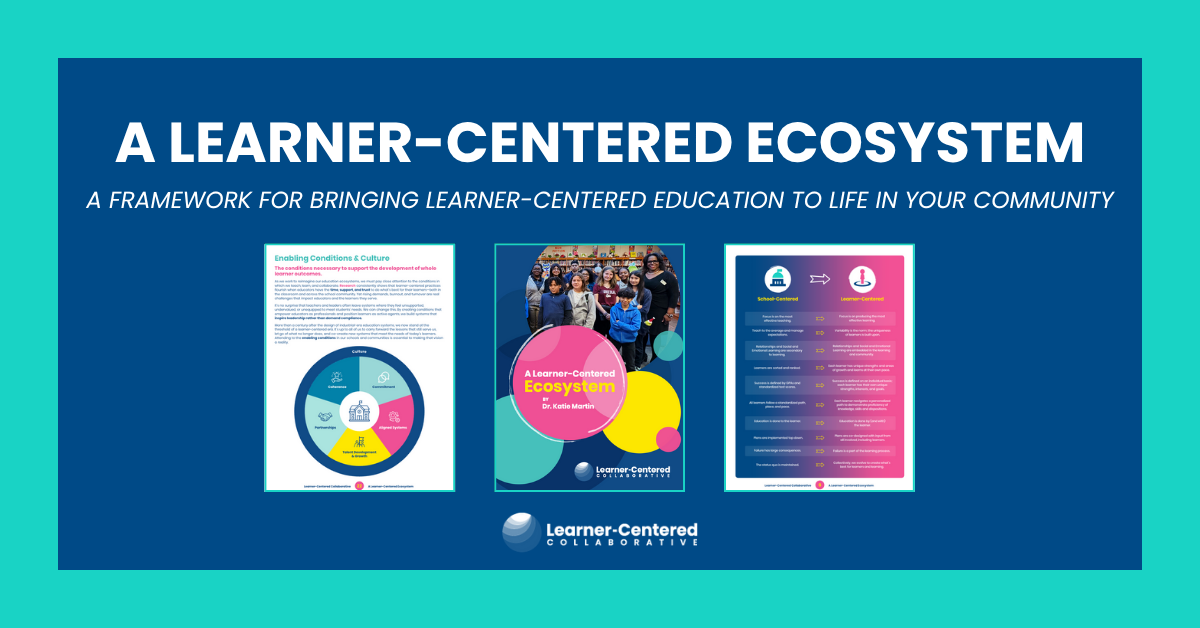Updates from a Flourishing Research Collaborative
Learner Centered Collaborative (LCC) and the University of California San Diego (UCSD) recently hosted a second Research Partnership convening—this time focused on relational trust, belonging, and flourishing in educational ecosystems. The unique partnership, which applies research in practice to ensure findings translate seamlessly in the field, is also committed to timely dissemination of information along the way to accelerate change. The insights shared below surfaced at the Jan 26, 2024 gathering which included various educational partners from across the Southern California region: Vista Unified, Santa Ana, Laguna Beach, Escondido, Poway, Bonsall, and High Tech High.
Building Momentum Together
During the first research convening in October 2023, participants reflected on what they would like to learn through this unique partnership. Ideas generated were clustered by theme to surface various “big ideas” that would shape the focus of conversations in future sessions. While staying true to the research partnership’s aim, to advance learner-centered practices grounded in evidence-based research, this second convening afforded participants the opportunity to dive deeper into one of those big ideas: relational trust, belonging, and flourishing.
Explore the big questions driving the research agenda of this collaborative.
Fostering Relational Trust & Belonging in Educational Ecosystems
To kick us off, Dr. Vodicka (LCC) and Dr. Lockton (UCSD) shared research on relational trust and belonging to ground us in shared understanding. Dr. Vodicka’s research reveals four key elements of relational trust: consistency, compassion, communication, and competency. The interplay between these four elements in establishing and maintaining high levels of relational trust is illuminated in Dr. Vodicka’s book Learner-Centered Leadership. His research shows that high levels of relational trust are associated with outcomes such as greater student achievement in reading and math, greater likelihood that teachers will go above and beyond, and, in the case study of Arcadia school district, a district’s ability to realize student-centered learning.
Similarly, belonging has garnered attention in recent years for the essential role it plays in shaping educational ecosystems. Citing various research studies, Dr. Lockton illuminated how belonging is a fundamental need. We find relevance and meaning in belonging, and it matters to our well-being. In addition, belonging has a profound impact on our experiences at work and in education. To strengthen educational ecosystems, we must attend to belonging.
Dr. Lockton shared four constructs to foster belonging:
- We must acknowledge that dignity is innate; everyone has and deserves it.
- We have to build personalized educational ecosystems in which all members are seen as unique and valued.
- We need to invest in the present moment, being attuned to the energy we bring into spaces.
- We need to possess a future orientation that signals the future will include the relationships we are investing in today.
Relational trust and belonging clearly shape the health and outcomes of our educational ecosystems. Dr. Vodicka and Dr. Lockton shared practices to spark the collective’s thinking and to guide our future actions. The third topic of the day, flourishing, builds on relational trust and belonging by extending an even deeper conceptualization of well-being.
Flourishing in Educational Ecosystems
Flourishing is a newer, some might argue, more expansive concept of well-being emerging in research across various fields, education included. Early conceptualizations of flourishing, Dr. Lockton shared, reveal common or overlapping themes, but a firm conceptualization is still in development. At the convening, to activate participants’ own ideas, we were asked to consider what comes to mind when hearing the word flourishing. What comes to mind for you?
I resonated with an analogy that surfaced in various groups across the room, that of a flourishing garden or plant. We might assess the wellness of a plant by looking at its structure, color, or by tracking its growth. But to understand if the plant is flourishing, we need to look beyond the wellness of the plant itself to examine the contexts in which the plant resides, such as the quality of the soil, its access to water, and the surrounding environment. Furthermore, the context in which a plant lives is not static and must be assessed and attended to regularly. The soil must be tilled, the water replenished, and the environment assessed and modified if needed.
As the analogy illuminates, flourishing extends the concept of personal wellness to incorporate the health of the contexts in which somebody or something lives (or works or learns). When we flourish, research indicates, positive outcomes abound. Flourishing, Dr. Lockton shared, is associated with better physical health, productive and prosocial behavior, and increased resilience, for example. As humans, if we are physically and mentally healthy and the contexts that surround us are also healthy, we are able to flourish.
Flourishing Together
During this second convening, we deepened our relational trust as a group, created a sense of community and belonging, and tilled and watered the soil of our collective. As next steps, participants were asked to consider what is already being done in their own contexts to promote relational trust, belonging, and flourishing. Drawing on these bright spots, Dr. Lockton is working to create a network map that can be shared back with the group. In addition, the collective is recruiting volunteers to engage with suggestions generated by participants to improve on these elements in educational ecosystems.
In future convenings, the aim is to include even more regional leaders and thought-partners working towards the same vision, expanding our network and, therein, the possibilities this unique partnership presents.
If you are interested in updates, getting involved in the work, and/or joining future convenings, please contact collaborate@learnercentered.org.
